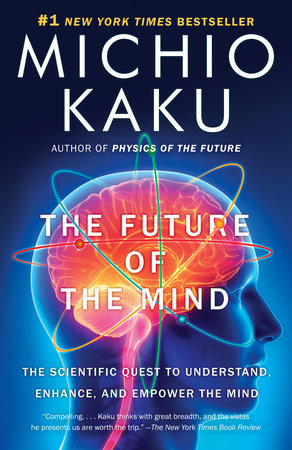The field of neurobiology and eating disorders is one that is being continually studied and understood.
YOU MIGHT ALSO LIKE
CLEAR ALL
BY TOPIC
BY TEACHER
BY TYPE
FILTER

TOPIC
- Brain Health (12)
- Bulimia (12)
- Neuroplasticity (12)
- Emotional and Mental Health (11)
- Living with Illness (11)
- Mind-Body Connection (10)
- Stress (10)
- Trauma (10)
- Autoimmune Disease (9)
- Binge Eating (9)
- Science and Spirituality (9)
- Well-Being (8)
- Chronic Health Conditions (7)
- Dementia (7)
- Depression (7)
- Romantic Relationships (7)
- Self-Healing (7)
- Altered States (6)
- Anxiety (6)
- Child’s Trauma (6)
- Cognition (6)
- Meditation (6)
- Memory (6)
- Polyvagal Theory (6)
- Psychedelic Research (6)
- Trauma Healing (6)
- Addiction (5)
- Cancer (5)
- Consciousness (5)
- Emotional Intelligence (EQ) (5)
- Habit Formation (5)
- Mindfulness (5)
- Physical Health (5)
- Resilience (5)
- Addiction Recovery (4)
- Body Image (4)
- Buddhism (4)
- Chronic Pain (4)
- Diet and Nutrition (4)
- Handling a Loved One’s Illness (4)
- Happiness (4)
- Honoring Emotion (4)
- Imagination and Creativity (4)
- Mindfulness Meditation (4)
- Neurodiversity (4)
- Neuropsychology (4)
- Parenting (4)
- Psilocybin (4)
- Psychology (4)
- Religious Experience (4)
- Self-Care (4)
- Self-Discovery (4)
- Sex (4)
- The Feldenkrais Method (4)
- Willpower (4)
- Autism (3)
- Child’s Emotional Growth (3)
- Decision Making (3)
- Dysfunctional Childhood (3)
- Empathy (3)
- Grief (3)
- Intimacy (3)
- Obsessions/Compulsions (3)
- Transcendent Experience (3)
- Weight Concerns (3)
- Aging (2)
- Astral Projection (2)
- Caregiver Well-Being (2)
- Challenges with Teens (2)
- Chronic Anxiety (2)
- Chronic Fatigue (2)
- Clinical Depression (2)
- Compassion (2)
- Connection (2)
- Digital Life (2)
- Embodiment (2)
- Finding Meaning (2)
- Generosity (2)
- Habits of Mind (2)
- Human Potential (2)
- Identity (2)
- Integrative Medicine (2)
- Joy (2)
- Kindness (2)
- Love (2)
- LSD (2)
- Marriage (2)
- Memoir (2)
- Perception (2)
- Personal Development (2)
- Psychedelic-Assisted Therapy (2)
- PTSD (2)
- Shame (2)
- Stress Management (2)
- Suffering (2)
- Synesthesia (2)
- Visions and Hallucinations (2)
- Yoga (2)
- Alcohol Addiction (1)
- Attachment Theory (1)
- Awareness (1)
- Belonging (1)
- Biofeedback (1)
- Biohacking (1)
- Black Well-Being (1)
- Cannabis/CBD (1)
- Changes in Libido (1)
- Child’s Challenging Behavior (1)
- Children’s Well-Being (1)
- Cognitive Psychology (1)
- Communication Skills (1)
- Death or Loss of a Child (1)
- Disconnection (1)
- Divorce and Breakup (1)
- Dreamwork (1)
- Drug Addiction (1)
- Ego (1)
- Endurance (1)
- Epigenetics (1)
- Exercise (1)
- Fatigue (1)
- Fear (1)
- Fellowship and Community (1)
- Foster Parenting (1)
- Friendship (1)
- Gender Identity (1)
- Global Challenges (1)
- Global Food Supply (1)
- Grace (1)
- Growth Mindset (1)
- Guilt (1)
- Healing Approaches (1)
- Healthy Eating (1)
- Holism (1)
- Hope (1)
- Identity Shifts (1)
- Infidelity (1)
- Inflammation (1)
- Inner Life (1)
- Inner Peace (1)
- Inner Strengths (1)
- Insomnia (1)
- Intention (1)
- Kids and Sports (1)
- Learning Styles (1)
- LGBTQIA Well-Being (1)
- MDMA (1)
- Men’s Well-Being (1)
- Midlife Crisis (1)
- Mindfulness Practices (1)
- Negative Self-Talk (1)
- Nightmares (1)
- Offering Support to Others (1)
- Oneness (1)
- Past Lives and Reincarnation (1)
- Peak Performance (1)
- Play (1)
- Positive Self-Talk (1)
- Postpartum Depression (1)
- Presence (1)
- Problem Solving (1)
- Psychological Approaches (1)
- Relationship Challenges (1)
- Relationship with Money (1)
- Rolfing (1)
- Self-Acceptance (1)
- Self-Actualization (1)
- Self-Compassion (1)
- Self-Control (1)
- Self-Limiting Beliefs (1)
- Self-Pressure (1)
- Self-Realization (1)
- Self-Reflection Practices (1)
- Setting Limits and Boundaries (1)
- Sleep (1)
- Sleep Disorders (1)
- Social Media Addiction (1)
- Somatic Experiencing (1)
- Spiritual Development (1)
- Spiritual Healing (1)
- Telepathy (1)
- Tibetan Buddhism (1)
- Time Management (1)
- Transformation (1)
- Trauma-Informed Therapy (1)
- Unfulfilled Career (1)
- Wholeness (1)
- Women’s Well-Being (1)
- Young Adult Well-Being (1)
- Zen Meditation (1)
FILTER

TEACHER
- Lisa Feldman Barrett (4)
- Richard Davidson (4)
- Annie Hopper (3)
- Robin Carhart-Harris (3)
- David Perlmutter (2)
- Eckhart Tolle (2)
- Gabor Maté (2)
- Joel Fuhrman (2)
- Oliver Sacks (2)
- Anat Baniel (1)
- Anna Lembke (1)
- Dacher Keltner (1)
- Daniel Goleman (1)
- David Eagleman (1)
- David Spiegel (1)
- Dilip Jeste (1)
- Erin Clabough (1)
- Glennon Doyle (1)
- Howard Gardner (1)
- Jean Shinoda Bolen (1)
- Jeffrey Mishlove (1)
- Joe Dispenza (1)
- Judson Brewer (1)
- Kenneth Pelletier (1)
- Lisa Wimberger (1)
- Lissa Rankin (1)
- Maria Nemeth (1)
- Matthieu Ricard (1)
- Michio Kaku (1)
- Nikki Mirghafori (1)
- Peter A. Levine (1)
- Roland Griffiths (1)
- Ruby Wax (1)
- Sanjay Gupta (1)
- Stan Tatkin (1)
- The Dalai Lama (1)
- Thomas Moore (1)






